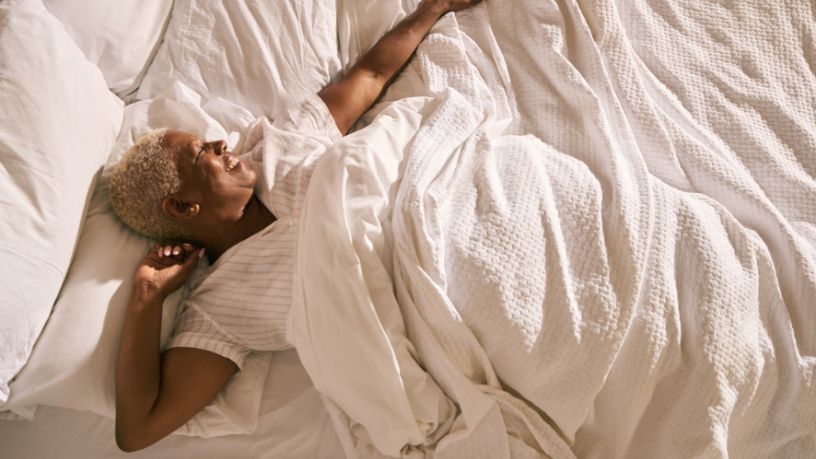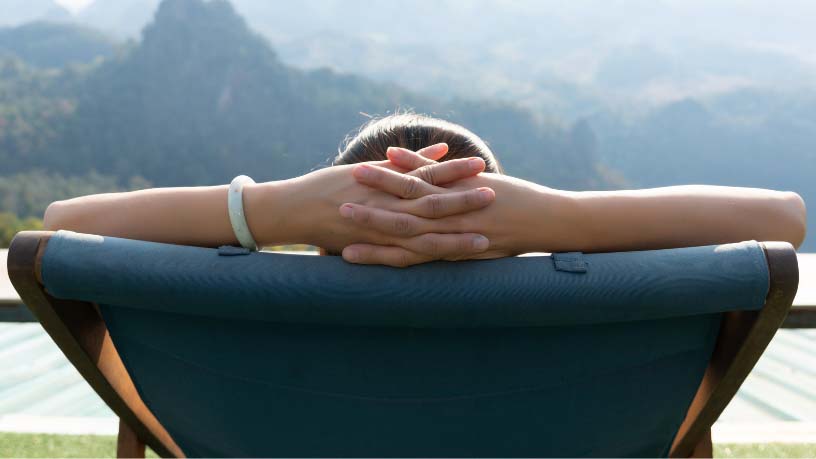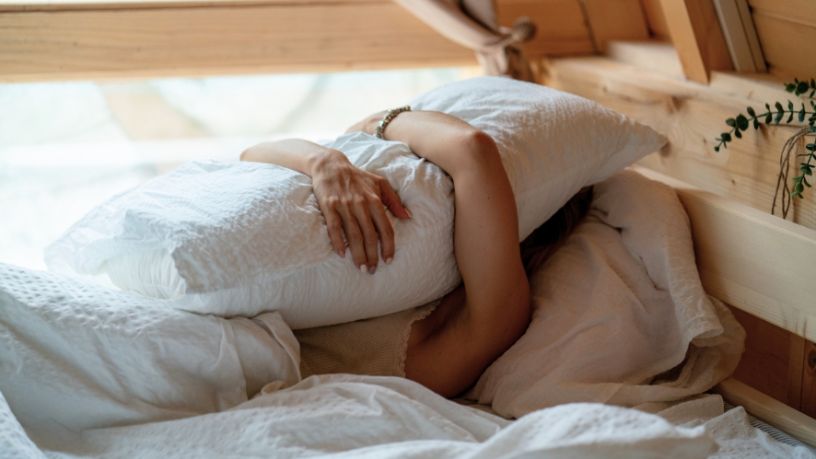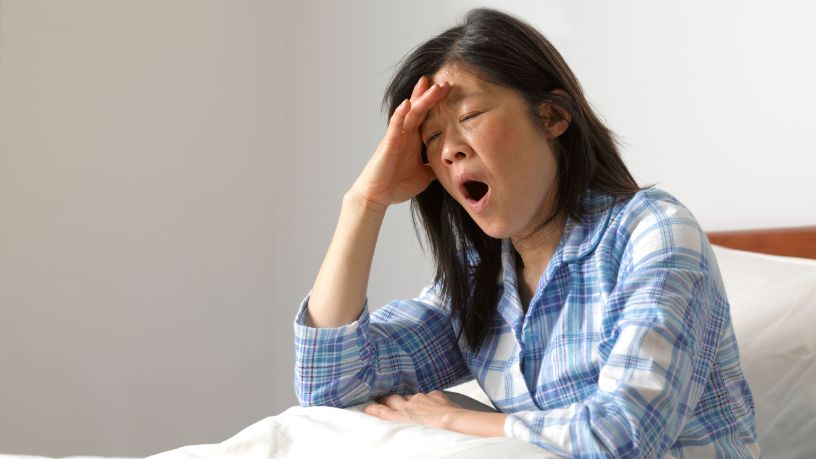What you eat during the day can have a significant effect on the quality of your sleep.
Key takeaways
If you’re having trouble sleeping (or getting good quality sleep), rethink your caffeine and alcohol consumption throughout the day.
Avoid over and under-eating before bedtime.
What you eat and drink can affect every facet of your health, and your quality of sleep is no exception. Research shows there’s a link between disordered sleep and diet.1
The caffeine connection
For some of us, a morning coffee is a non-negotiable way to get the day started. If you’re still sipping on lattes into the afternoon or evening, however, you may need to reassess your coffee intake.
Bupa Dietitian Rosalyn D’Angelo says caffeine is a stimulant drug that is strongest in the first hour after having it, but notes it can still be in your system up to 8 hours later.
“Even if you think you can have a coffee before bed and still fall asleep quite easily, it’s possible that caffeine is affecting your sleep patterns throughout the night,” D’Angelo cautions.
If you're having difficulties sleeping, try a lunchtime caffeine cut-off.
Remember that green and black tea, chocolate, cola, energy drinks and cocoa also contain caffeine.
For something hot to drink in the afternoon, try a herbal tea like chamomile, lemon balm, lavender, or peppermint.
Top up your tryptophan
Certain foods contain an amino acid called tryptophan, which can be converted into the ‘sleepy hormone’ melatonin. Research shows that a diet low in tryptophan can inhibit sleep.2
“Foods high in tryptophan include turkey, eggs, cheese, seeds, nuts, soy products, milk and yoghurt,” D’Angelo says.
Turkey, chicken and beef contain about 300 milligrams of tryptophan per 85 grams.
Eating a balanced diet
Eating regular, balanced meals will not only affect how you feel during the day, but they can also impact your sleep.
“Replacing sugary treats and opting for healthier snacks and balanced meals can promote more stable blood sugar levels, which will likely mean more stable energy levels throughout the day,” D'Angelo explains.
Feeling more energised also means you’re more likely to exercise and handle stress better, which can flow on to better sleep quality.
Interestingly, a varied, healthy diet seems to promote sleep.
In a University of Pennsylvania study, scientists found that people who got 7 to 8 hours of sleep a night reported the greatest dietary variety, compared to people who slept too little or too much.3
Avoid over or under-eating
Going to bed with a rumbling stomach can keep you awake, but so can eating a large meal or consuming rich or spicy food too close to bedtime. This is because these foods can trigger stomach discomfort or reflux.
“I’d encourage people to have their last meal for the day a few hours before they go to bed,” D'Angelo advises.
If you’re still peckish in the late evening, a light snack such as fruit and yoghurt or a few multigrain crackers is a good option.
What about alcohol?
A glass of wine with dinner may make you feel more relaxed, but that doesn’t translate to better sleep. In fact, it can have the opposite effect.
“Alcohol actually reduces your sleep quality and decreases the amount of deeper restorative sleep you get,” D’Angelo says.
She recommends a gap of at least 3 hours between your last drink and bedtime.
Also, it’s a good idea to stick within the recommended drinking guidelines, which is no more than 10 standard drinks a week and no more than 4 standard drinks on any one day. Pregnant or breastfeeding women should not drink to prevent harm to their child or unborn baby.4

At Bupa, trust is everything
Our health and wellbeing information is regularly reviewed and maintained by a team of healthcare experts, to ensure its relevancy and accuracy. Everyone's health journey is unique and health outcomes vary from person to person.
This content is not a replacement for personalised and specific medical, healthcare, or other professional advice. If you have concerns about your health, see your doctor or other health professional.
1St-Onge, M. P, Mikic, A., & Pietrolungo, C. E. (2016). Effects of diet on sleep quality. Advances in Nutrition, 7(5), 938-949.
2Binks, H., Vincen,t G.,Gupta, C., Irwin, C., & Khalesi, S. (2020). Effects of diet on sleep: a narrative review. Nutrients, 12(4), 936.
You might also like...
Different types of sleep
Your body is actually quite active when you’re asleep, repairing cells, regenerating tissue and helping you grow. So how does REM and non-REM sleep work?
Breaking the stress-sleep cycle
A good night’s sleep is one of the best ways to manage stress, but ironically, it’s incredibly difficult to drift off when you’re stressed.
8 tips to help you sleep when it's hot
Hot summers are great until it’s time to get some sleep. We’ve come up with 8 simple tips to turn hot, sweaty nights into a peaceful, restful sleep.
Everything you need to know about sleep apnoea
Sleep apnoea is a common sleep disorder, though it is often under recognised and under diagnosed. Find out how it might affect you or your partner.





